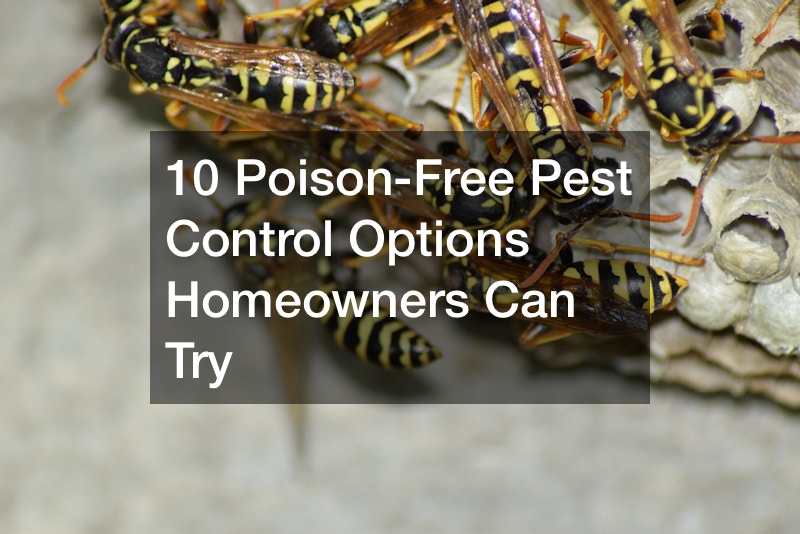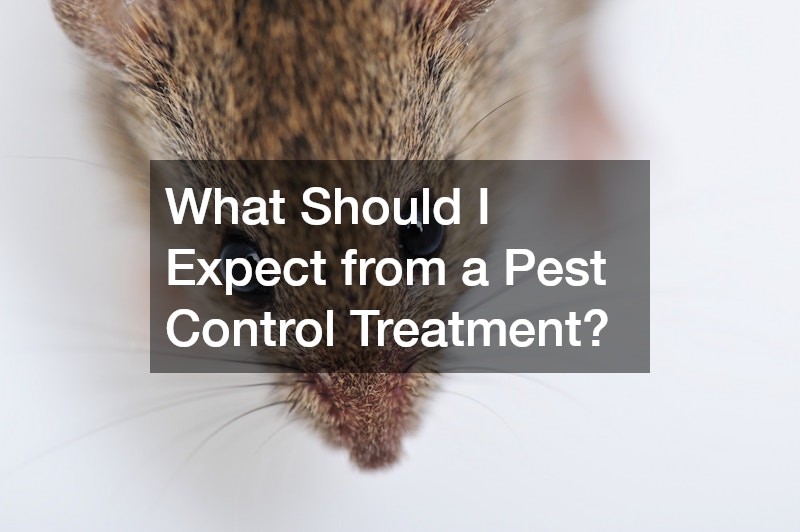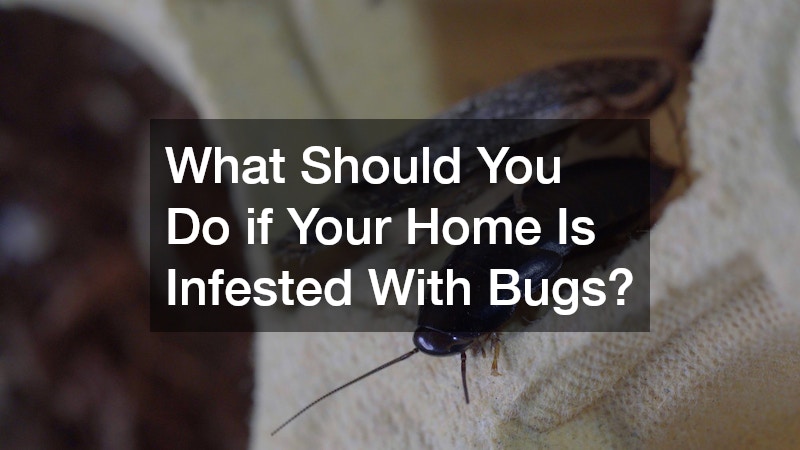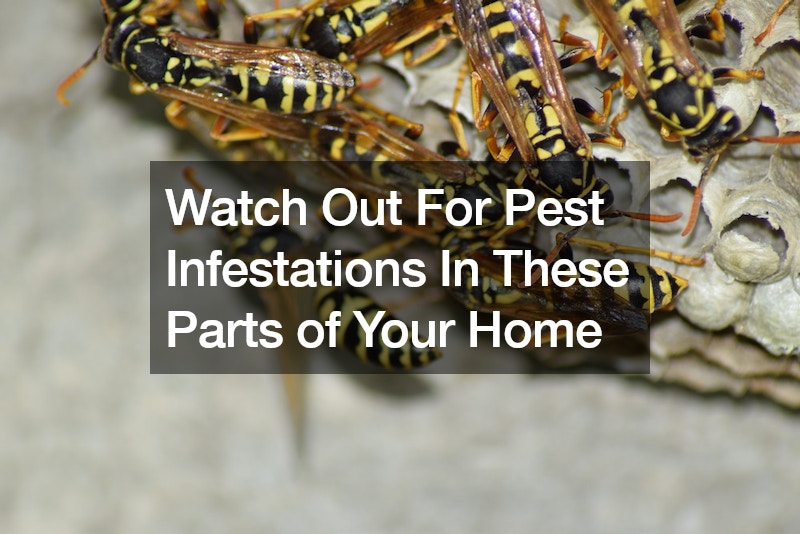Pest control may be one of the most important things for any homeowner to do. This makes it a good idea for you to look for pest removals that you know can do the best job every time without fail. To find an expert, you can search online for one. Use terms like “pest removal near me,” “pest away exterminators” or “mobile home pest control near me.” You may be able to find more than one that seems capable, and in this case, you ought to take a closer look at each.
Look for one that has a solid reputation to begin with. The right one should also be capable of clear communication. This is one detail that you’ll be happy you thought about the longer you work with the professional that you choose. That’s because nothing will ever be unclear, and even if it is, it won’t be for long. From the processes that they intend to use to the details of pricing and more, good, clear communication will help you get the best outcome, all things considered. The right pest exterminator can also help you maintain your home in a pest-free state by putting various measures in place.

Sometimes you want an all-natural pest control solution, but when those options fail to completely solve the problem, you might wish for a terminator for bugs. Read on to learn the top ways to naturally control pests. If, after you implement each of these solutions, your home remains invaded by pests, ask an exterminator to visit your home.

Finding Pest Control Without Contract Near Me
If you moved to an area recently, you might not know the top area pest control businesses. Visit the Better Business Bureau (BBB) website first to learn which area businesses to avoid. Consumers typically report businesses to the BBB when they have a problem with their service. After you’ve eliminated the inappropriate options, phone the local Chamber of Commerce to ask for a list of local pest control services.
Pest Control Book Online
Visit each service provider’s website to determine which offer online booking. These service providers may charge a flat rate or provide a booking option for service quotes. Try the following natural solutions for pest control, then phone a local pest control service if implementing them does not solve the problem.
What child didn’t fall in love with the spider, Charlotte, in the book ‘Charlotte’s Web’? You probably routed for the mouse, Jerry, from the famous cartoon ‘ Tom & Jerry’, as well. While cartoon versions of rodents and other pests may be fun, they’re not so much fun in real life, especially when you own a home. When you see various pests ranging from termites, mice, fire ants, and more, you should do your best to prevent them from further infesting your home or other areas of your property. Some people don’t want to use poison for many reasons. Some people don’t want to kill the pests, just keep them out. Others don’t want chemicals on their property. Luckily, there are poison-free pest control options for your home to try.
1. Keep Plumbing Leaks in Check
Plumbing leaks can do much more than cause damage to your home. They can also attract various types of vermin. Most creatures need water just as much as food, and pests are no different. Plumbing leaks may not always be obvious, but signs that you have one include higher water bills despite not increasing your water usage. You may also notice mold developing in areas. If your water pressure has decreased, that’s another sign that water is leaking in places where it shouldn’t be. Calling the plumber is an easy form of poison-free pest control.
When you have an untreated water leak, don’t be surprised if you get a roach infestation. According to Wood Comfort Systems, plumbing leaks are a leading cause of roach infestations in a home. Such creatures can survive weeks without eating, but can only go without a water source for a few days. That’s why when they enter your home, you’re more likely to see them around any place where water is prevalent.
It’s no secret that water leaks inside your walls can damage your structural integrity. It’s also a breeding ground for pests since the water softens the wood and makes it easier for rodents with sharp teeth to gnaw through. It also makes it easier for wood-boring insects like termites to have a field day. Therefore, if you suspect a leak, call on your local water restoration service to check for and repair existing water damage.
2. Install Screens on Doors and Windows
Screen doors and windows have always been a popular way to keep out pests, especially flying ones like mosquitoes, gnats, and bees. A screen is a great way to get fresh air in the hot summer months without letting flying bugs in. However, using a screen isn’t just for your regular doors and windows.
During a nice day, you may want to keep your garage door open and wave to the neighbors. Maybe you’re working on a project in the garage, and you don’t want to feel closed in. That’s when you can make use of a garage door screen. Installing this large screen provides poison-free pest control that lets you enjoy fresh air in your garage without being on the lunch menu of hungry mosquitoes.

3. Install a Sturdy Fence
When it comes to pest infestations, you have more than your home structure to worry about. They can invade other parts of your property, such as various aspects of your landscape. For example, do you have a green thumb? If so, don’t be surprised if you see cute wildlife such as deer, rabbits, and groundhogs that love to munch on your greens and carrots.
Hire a local fence company for poison-free pest control that can add to your property’s aesthetics. Installing a fence that’s at least six feet high will prevent as much wildlife from eating away at your garden as possible. However, the smaller ones, like rodents, can burrow underneath your fence. In that case, install 6 inches of barbed wire underneath the fences.
Fence material also matters. A wooden fence may provide a beautiful home feaature but can attract certain critters. While termites don’t only do damage inside your home, they can also eat away at your wooden fence. After all, wood is wood to a termite. Wood-boring beetles are just as destructive to your wood fence. If you’re not careful, these destructive insects can ruin the protection of such a fence and make it easier for other pests to break through. However, you could take precautions by staining, painting, and sealing your wood fence. That way, you can protect it from any insect that likes to eat wood.
4. Store Items Appropriately
Be careful how you store and pack things. The main thing to worry about is food, as most pests are searching for something to eat. In your home, be mindful of open bags and boxes of grains and flour, as these are typical nesting places where bugs like to lay eggs. Rodents and roaches will get into almost anything that has an opening. It’s a good idea to invest in airtight freezer bags and containers that rodents can’t smell through.
Do you sometimes cook too much and leave food on the stove? It’s a good idea to wait for it to cool down and store it in containers in the refrigerator. Otherwise, pots with food, even if they’re practically empty, can attract rodents and cockroaches that come out searching for food at night.
Do you sometimes eat in your car? While that’s common, you should also be mindful of keeping it clean from leftover food and storing anything you’ll keep in there for a while. Leaving food in your car with a cracked window is a great way to invite pests. Be extra mindful of buying someone else’s used car. If you’re looking for repairable vehicles for sale, check for any signs of bug infestations due to someone leaving food in the car.

5. Handle Home Repairs Promptly
Don’t let home repairs linger. Otherwise, you may leave your home too vulnerable to openings for outside vermin to get in. If there are any holes or openings in your home exposed to the outside, it won’t take long for an infestation to begin. According to Stiff Sure, a mouse can fit through a hole as small as a pencil.
Your attic and basement are extra vulnerable. If you can see sunlight shining through your attic, there are cracks and holes that can make it easy for birds, rodents, snakes, raccoons, and more to crawl into your attic and create a new home. Basements are also prime territory for floods and water damage. If your basement is damp and improperly sealed off, it can make it very easy for borrowing vermin like rats to get in. A good concrete repair service is the first step in creating a new floor in your basement. From there, you could further waterproof and seal it off with epoxy sealing.
6. Ensure Doors and Windows Shut Tightly
Keeping doors and windows shut do more than keep human intruders out. If you open windows without having a screen inside, you invite tons of flying insects in. It’s the same thing with open doors. As mentioned, using a screen on both elements can protect your home from outside pests. However, if you don’t have a screen, make sure your doors and windows are always shut tight. When you come home, close the door firmly behind you before you run off and do something else. Your local house locksmith can install a deadbolt to seal your door shut.
Technology may also come in handy thanks to the use of smart locks. According to PC Mag, smart locks cost around $100. While it’s clearly more expensive than a traditional lock, it can give you alerts that your door or window is open, even when away from home. These locks also provide poison-free pest control.

7. Dispose of Waste Materials
Poison-free pest control begins with solid waste management. Be mindful of any type of waste and debris that you have in your home and the surrounding landscape. Of course, food waste is the biggest attraction when it comes to pests. Whether it’s food scraps from cooking or discarded containers, dispose of them in a closed garbage container. Try to put the trash out as frequently as possible so it doesn’t smell up the home.
Do you have an extensive landscape? If so, be careful to not have debris lying around, as it can serve as a breeding ground for rodents, snakes, fire ants, and raccoons to nest in. They can easily hide and use debris for their nests. A construction waste disposal service is a great option to use for a massive cleanup of your landscape. There may be too much debris to fit into a regular trash can. That’s why a disposal service can enable you to clean up the debris faster.
8. Remove Dead Plants
It can be hard when plants die in your home, especially when you made the mistake of forgetting to water them. However, if you can’t bring your plant back to life, it’s best to get rid of it as soon as possible. Otherwise, dead plants, including trees, can attract various bugs. Mealybugs, aphids, and scales are just a few pests that frequent house and garden plants. Those bugs will infest your plant and slowly begin eating away at leaves, causing them to die.
Dead and diseased trees are especially a nuisance to pest control, as they can create a series of bugs. When a tree is sick and dies, it can spread that illness to other trees. If you don’t manage the problem, you may have a landscape full of dead wood. Flies are some of the most annoying insects around and love anything that’s dead, including dead trees and other plants. Check into cheap tree removal for poison-free pest control that keeps flies off your property.

9. Air Seal Your Home
Cracks and other vulnerabilities in your home allow outside air to come in and internal air to escape. Bugs can easily follow the outside air into your home. It doesn’t take a large crack for flies, mosquitoes, gnats, and moths to invade and begin laying eggs.
According to Bob Vila, spray foam insulation contractors can provide the best way to insulate your home. In addition to being a poison-free pest control option, it also lasts a long time. However, any type of insulation can work to keep pests outside. If you’re not sure where your air leaks are coming from, have a contractor come and conduct a blower door test. That test will track where air leaks are coming from, and you can make the necessary sealing updates to your roof, windows, door, basement, or insulation.
10. Treat or Remove Outdoor Standing Water
One of the dangerous aspects of flooding isn’t just the water damage it causes, but the fact that it’s standing water. Standing water is a hotbed for destructive bugs, such as mosquitoes that can spread diseases like cholera.
A poison-free pest control option involves a water management plan that will keep bodies of water on your property moving. For example, did you install a fishpond? If so, add a waterfall that constantly filters the water through the pond. It’s not only good for the fish themselves but can prevent mosquitoes from laying up to 100 eggs in the water.
No homeowner wants to deal with vermin. Pests can be destructive and breed in a short amount of time. They may spread disease and eat through your home’s foundation. Some are otherwise cute animals like rabbits and deer that you just want to keep out of the garden. Luckily, this guide can help stop such creatures from invading your home and landscape by using poison-free pest control.




